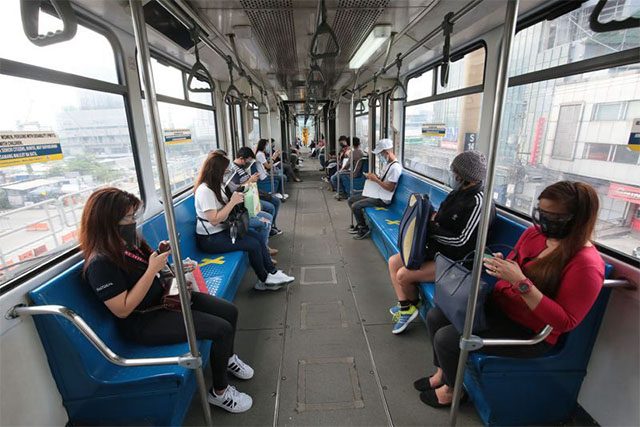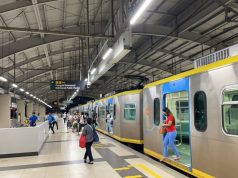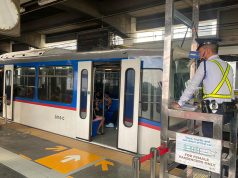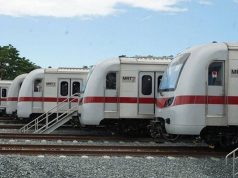
The Metro Rail Transit is not for sale.
The Department of Transportation issued this clarification after a report said that the government is eyeing to turn the train system over to the private sector.
The Philippine STAR reported that Transportation Undersecretary Cesar Chavez stated the Department of Transportation’s “direction” to privatize MRT-3.
In response to this, Transportation Secretary Jaime Bautista clarified in a statement on November 9 that what the department is mulling to be turned over is MRT-3’s operations and maintenance, not the railway system itself.
“Operations of railways in the metropolis LRT-1, LRT-2, MRT-3 continue to be subsidized by the government to keep fare levels affordable,” Bautista said.
“We are looking at partnering with private rail operators for MRT 3’s operations and maintenance under the same scheme with LRT-1 with the rail lines assets remaining government-owned,” he added.
Bautista said that DOTr aims to improve MRT-3’s operations at a lower cost to keep the rates affordable for commuters.
The transportation chief further said that “railway systems should remain the most affordable and safest mode of mass transit in the country.”
MRT-3 is currently being run and subsidized by the government in partnership with the Metro Rail Transit Corporation under a build-lease-transfer agreement that will expire in 2025.
MRTC is a private consortium led by business magnate Robert John Sobrepeña.
Public trains are funded by taxpayers
Citing data it obtained, the Philippine STAR on November 6 reported that the government spends at least P8.93 billion every year to operate and maintain MRT-3 from 2000 to 2021.
Throughout the 22-year period, the government’s revenue from the fare collection only amounts to P1.72 billion on average per year.
This is merely 19% of the annual expenses for the public train.
Because of the high costs and low revenues, Transportation Undersecretary Chavez told the news outfit that the government is studying to privatize the MRT-3.
“We don’t have a defined scope for the privatization yet, [as] we need to first determine if we are privatizing just the O&M only or also including the assets,” he was quoted in the report as saying.
The transport official further said: “All options are being studied, but the direction is to privatize MRT-3.”
While no decision has been made yet, Filipino commuters expressed their opposition over this plan.
Several online users pointed out that public transportation is not a business venture for the government to earn from.
“You think public transportation should make money for you? Public utilities should not be viewed as business ventures but as essential public services! Public transportation is an essential public service!” screenwriter Hyro Aguinaldo with the handle (@heyrow) tweeted.
“Dapat naman talaga sinasagot ng gobyerno public transpo ah. Para saan pa ba mga taxes na kinokolekta lol ginawa pang negosyo eh kainis,” another Twitter user said.
“Does it need to be profitable?! No, this freaking train is funded by citizens’ taxes all over the Philippines,” another user tweeted.
Other Filipinos also suggested that the government should look into why MRT-3’s operational costs rose to nearly P9 billion instead of privatizing it.
“But maybe like…. fix maintenance, the process of maintenance to be of better quality so you wouldn’t have to maintain it so much?” one Twitter user said.
“Baka review how the profits and expenses end up ballooning to 8.93 B for the government? Ads and lease rentals MRT spaces should cover but they aren’t managed well – notice how the food stalls in MRT stations disappeared,” another user tweeted.









